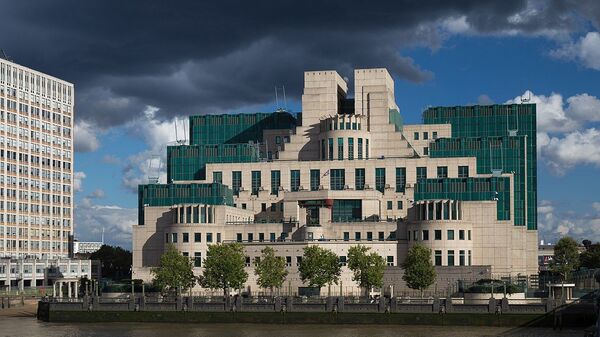Kevin Blowe co-founded Network for Police Monitoring (Netpol) in 2009 and has been its paid coordinator since 2015. He tells Sputnik that the British government's proposed Covert Human Intelligence Sources Bill 2019-2021 represents a direct threat to liberty and the rule of law.
Sputnik: Describe how exactly the Covert Human Intelligence Sources (Criminal Conduct) Bill would work in practice.
Kevin Blowe: There has been a policy in existence for decades that enabled MI5 to cover up wide-ranging illegal activity by its agents and assets, known as "the third direction". In 2018 this was challenged in a case brought to the extremely secretive Investigatory Powers Tribunal. Unsurprisingly, a Tribunal set up to provide a veneer of accountability to unaccountable surveillance ruled that allowing agents and informants to participate in serious crimes is lawful, although the first time ever there were dissenting judgments critical of the statutory framework for these activities.
That is why the bill was introduced: to give formal backing to the legality of illegal activities when they are conducted by state agencies. The government has acknowledged that authorisations for law-breaking will breach a range of different human rights but insists this is necessary on the grounds of national security and law enforcement.
Sputnik: Can you give some examples of how it may be used?
Kevin Blowe: The government has focused on the infiltration of drug gangs, terrorist groups and child exploitation networks. Even the prospect of allowing different agencies to break the law, with no limit on the type of crimes they can commit, in these instances is terrifying, but we know surveillance is also deeply political.
Sputnik: Some MPs proposed amendments to this bill, that ultimately failed to pass. What would the proposed amendments have done?
Kevin Blowe: In all honesty, while some have focused on amending the bill, Netpol has opposed the bill outright. It is dangerous and authoritarian and tinkering with it at the margins will not make it any less harmful. That is what has made the main opposition party's refusal to oppose it, so as not to look "weak" on security issues, so completely cowardly.
Sputnik: Why should the average Brit be concerned about this law?
Kevin Blowe: Every piece of draconian legislation introduced by the British government and justified on the basis of national security and countering terrorism has included promises that the police or other state agencies will use powers in "exceptional" circumstances and with respect for human rights. Instead, reliance on these powers has always expanded until eventually, a leak or a scandal exposes the way they are used with impunity and this finally forces the government to retreat.
Sputnik: Doesn't it make sense to provide the state and its agents a degree of immunity so that they can protect society during what can often be dangerous work?
Kevin Blowe: The question here is whether security and law enforcement is really concerned with "protecting society" or protecting itself and narrow state and corporate interests. There has been a well-documented history of state surveillance of lawful trade union activity, grieving families and justice campaigners. The government may claim these powers are exclusively for "dangerous work" but we have seen this is patently untrue.
Furthermore, if we are talking about protecting society from trafficking drugs or people, we need to start questioning why cracking down on criminal gangs has repeatedly failed for years and whether decriminalising drug possession and sex work are better solutions to protect society than a licence to commit criminal acts by state assets. If we are talking about protecting society from "radicalisation", perhaps we need to look more closely at the impact of the media fuelling poisonous racism, the alienation that a decade of austerity has created, or capitalism's failure to take climate change seriously, or the callousness of British foreign policy.
It is simply not true that the only solutions to a fractured society are more laws, more police and more repressive laws that endanger our human rights.






